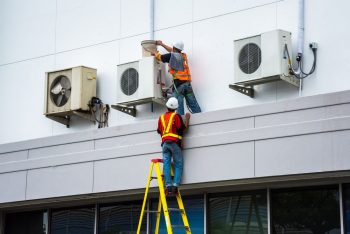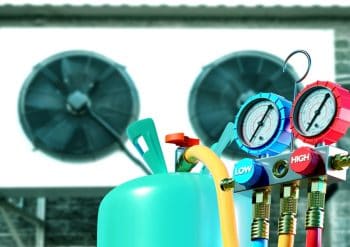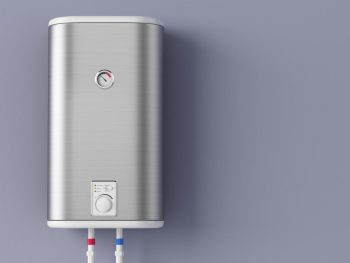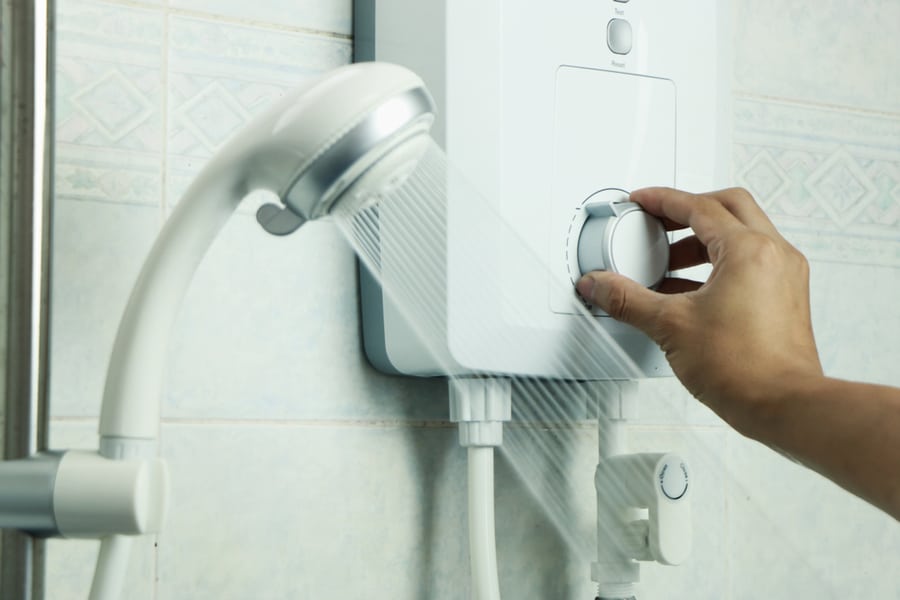
It is rare for you to start thinking about your water heater because it supplies hot water whenever you want, and in most cases, you may take it for granted.
Most homeowners were unaware that ruptured water tanks are the major causes of residential water damage, which costs them a lot of money.
A water heater is a fantastic appliance that provides heated water for various purposes, such as laundry, showers, and dishes.
The appliance can do many things because it continuously refills as it empties due to its unlimited water supply.
Its constant refilling ability can cause a severe problem if the tank starts to leak. If the problem goes unnoticed for many hours, depending on the leak severity, it can leak into the office or home, suffering serious water troubles.
There are five steps that you should take whenever you see water near the hot water tank:
- Turn off the water supply line
- Switch off the power
- Call a plumber
- Start cleaning up the standing water
- Call a trusted restoration company
There are several causes of water heater bursts, but the major ones are:
- Excess pressure
- Old or aging heater
- Sedimental build-up
- Corrosion
- A broken storage tank
There are various things that you look at to know that your water heater has failed or burst and take the right action:
- Corrosion
- Leaking
- Strange Noise
- Strange water temperatures
- Failed parts.
Causes of Water Heater Bursts
1. Excess Pressure
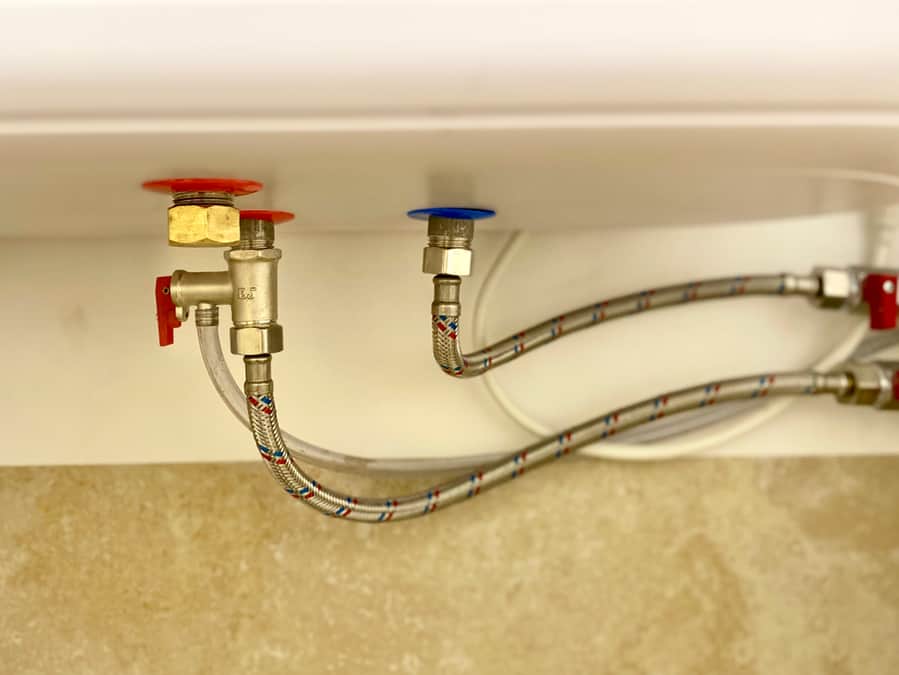
A water heater is made to handle pressure. However, excess stress can make it burst. Modern water heaters have the built-in pressure relief and temperature valves that wear down over time.
If this feature valve starts leaking or opens frequently, your water heater could have a pressure problem. Also, your water heater can develop a pressure problem if you set water temperatures too high.
2. Sediment Build-Up
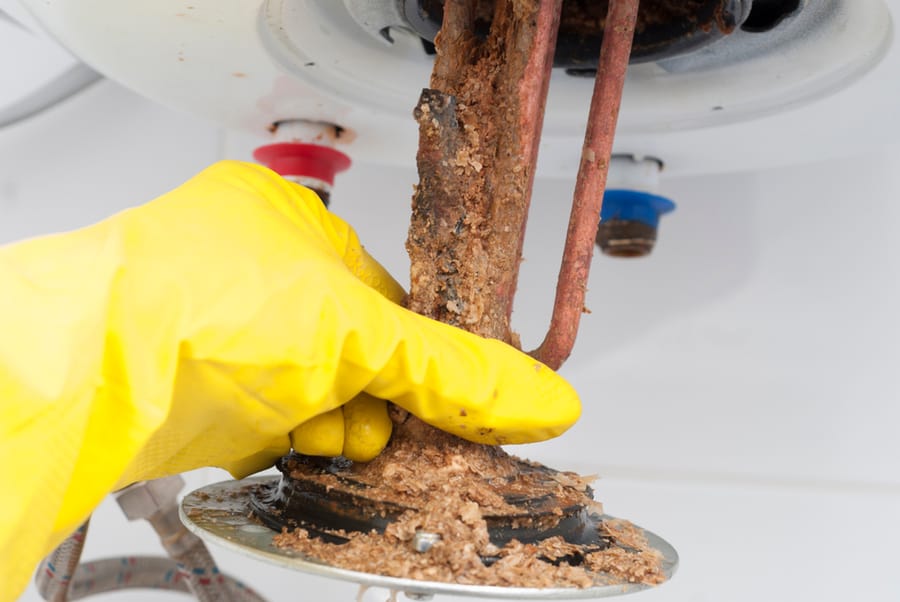
Using hard water at home may contain some minerals that can build up in the bottom of the hot water tank.
As these sentiments accumulate, they build a layer between the water and the heating element. As a result, overheating starts to take place, which compromise the tank’s integrity.
If the water heater makes a knocking or popping noise as it warms up, it suggests sediment has accumulated in the tank.
You can prevent this problem by finding a plumber who drains and flush the tank yearly.
3. Old or Aging Heater
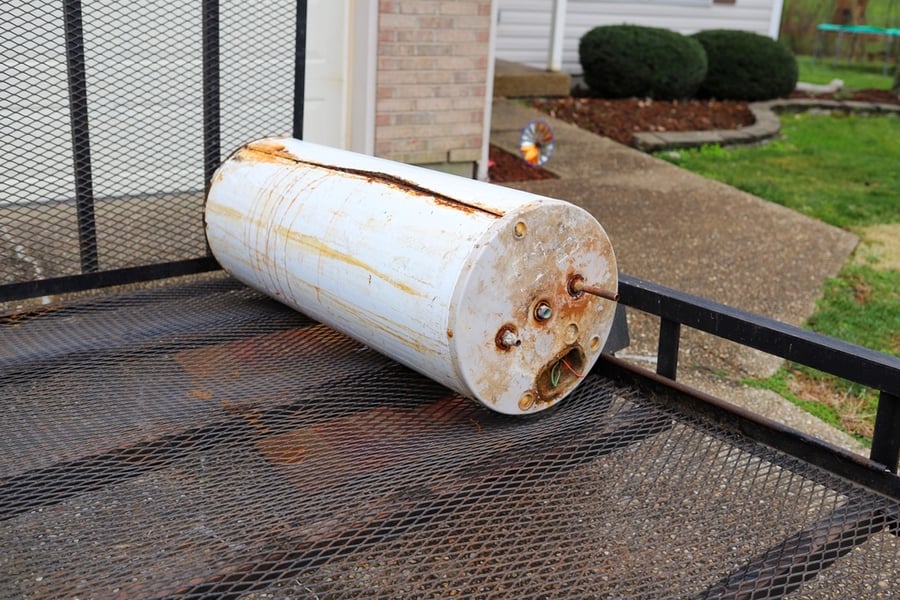
Most water heaters have a lifespan of not more than ten years.
If you have been living in your home for more than ten years and have never replaced your water heater, look for a professional to inspect and determine its lifespan so that you can do the right thing. Otherwise, consider replacing it.
As water heaters get older, their efficiency reduces. You start to experience a steady reduction in function as the water heater reaches 8-10 years old due to the breaking down of internal parts over time.
4. Corrosion
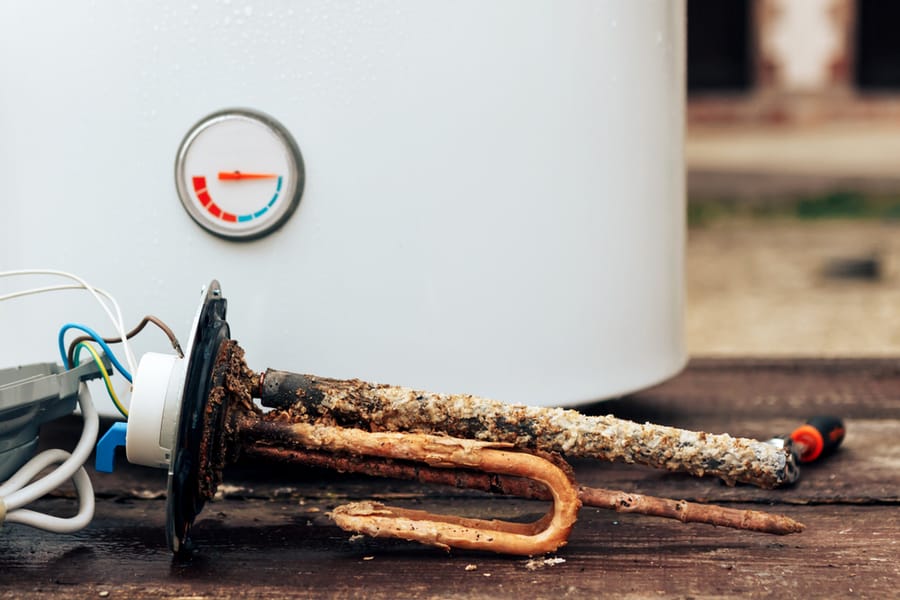
Modern water tanks are made of steel which is more durable than other materials. However, steel rusts over time.
To prevent this from happening, water heaters have a sacrificial anode rod feature that prevents the entire system from rust.
The anode rod can break down, and the tank starts to rust immediately after the breakage. If you see a brown tint in the water, that is a sign rusting is happening inside.
This can lead to corrosion, making the water heater burst or fail suddenly.
5. A Broken Storage Tank
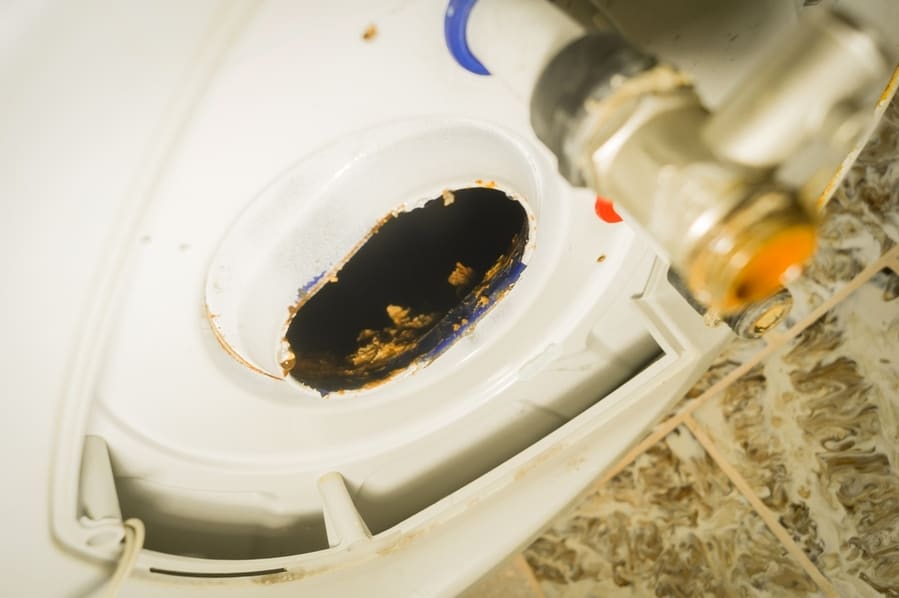
Water heaters are made of glass-lined storage tanks. Minerals build up in the water over time, breaking the glass and causing your water heater to leak or crack.
You cannot repair these cracks; the only solution is to replace the water heater.
Sometimes the leakages do not affect the appliance operation, and mole prefers waiting until the water heater fails or bursts to replace it.
If the leakages do not inflict any trouble or damage, it is fine to continue using the unit, but you will change the water heater someday when it fails to work appropriately.
5 Things To Do When Your Water Heater Bursts
1. Turn Off the Water Flow
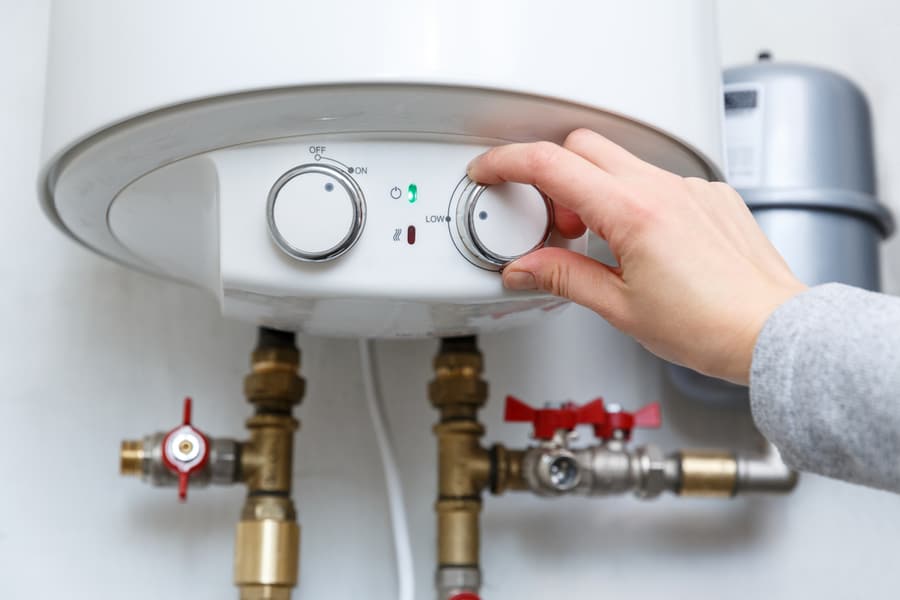
This is the first step to take when your water heater bursts. Find the water supply line that runs into the water heater. You should turn that line off.
If you do not find the supply line, you can turn off your main water supply line to stop the water flow and prevent extensive damage.
2. Switch Off the Power
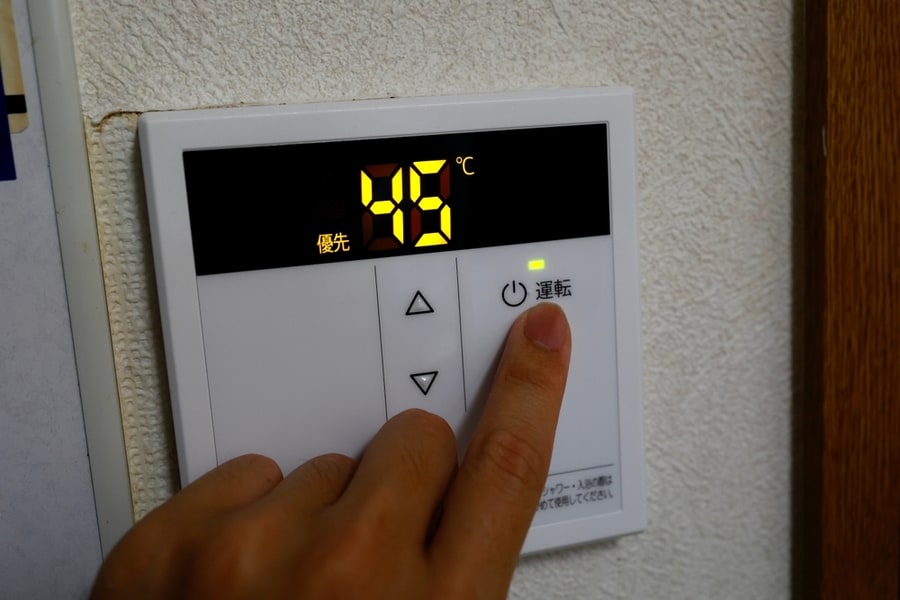
A broken water heater creates a huge water pool that can create a dangerous electrical hazard. Also, the water heater’s gas or electric element can continue running even after the tank fails, which can start a fire.
Bearing this in mind, check the water tank breaker in the main breaker box and switch it off. If the hot water. If you power your water heater using gas, shut it off at the source point.
3. Call a Plumber
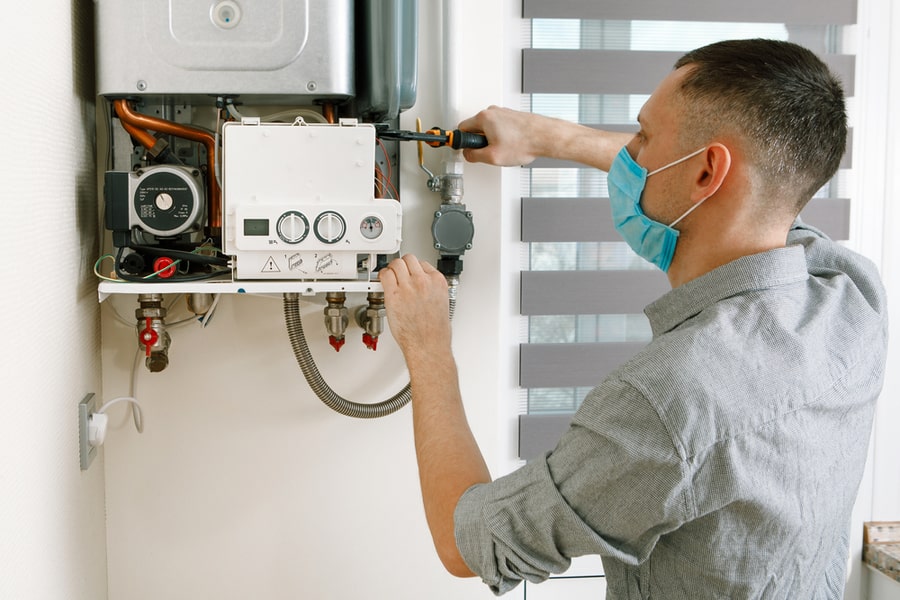
A skilled plumber will help you with a failed water heater. The plumber will determine if the water heater is repairable or should be replaced so that you can restore your house to working order.
4. Begin the Cleaning Process
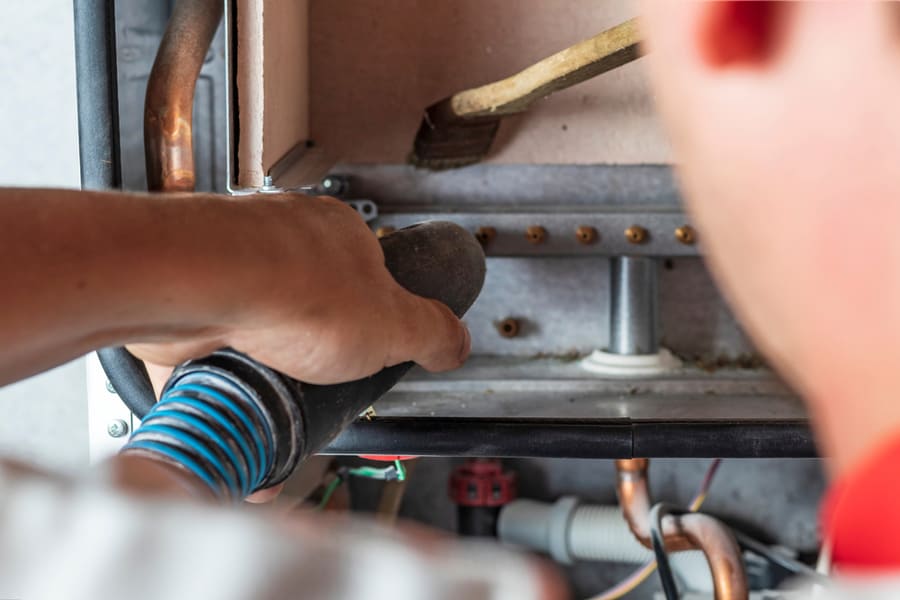
You should start to remove standing water from your house. You can use towels to clean up the standing water and place fans in affected parts for adequate air circulation and expedite dryness.
Do not clean the up process unless you are sure the areas are safe to enter and the water heater does not pose an explosion risk.
5. Call a Trusted Restoration Company
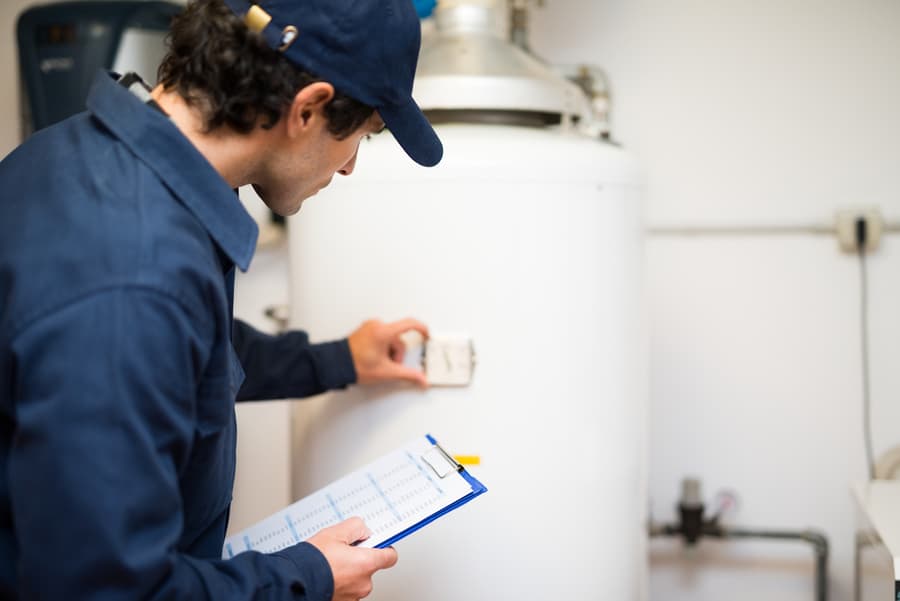
The company will help you in the restoration process. The services will be restored quickly and prevent further damage.
If you are insured, the restoration company will help you find your insurance team that files a claim, and the water damage cover process starts.
Signs of a Bursted Water Heater
1. Corrosion
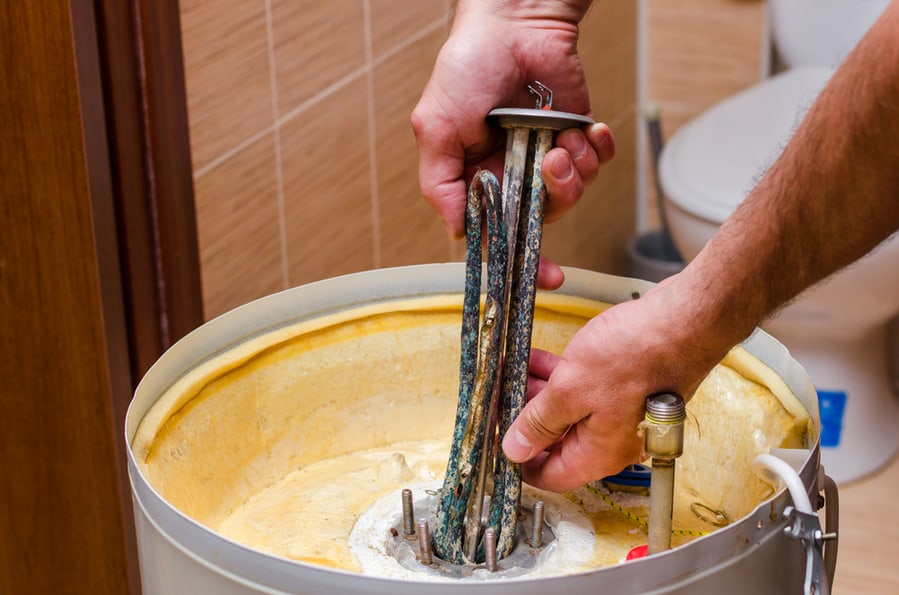
Water heaters have pressure-release valves for safety purposes. However, the valves wear out first; when they do, it is difficult for the water heater to produce adequate hot water.
It is easy to know when the valves fail if you manually increase the tank’s temperature.
2. Leaking
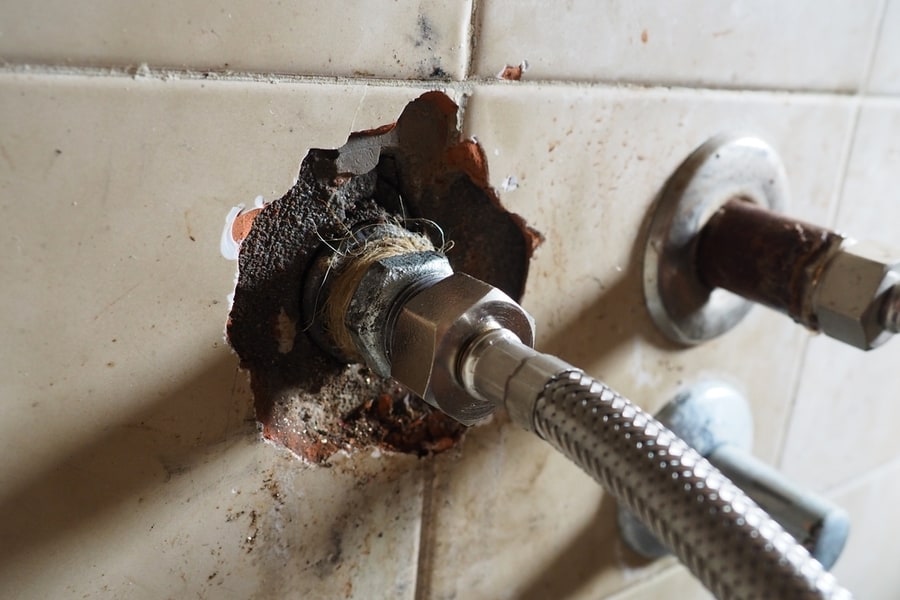
Liking is the major sign of a failing water heater. Mostly, it starts as a pool of water at the base of the water heater’s tank.
Leaking is common in tanks that have been used for over six years. If you notice leakages around the water heater, you should replace the tank immediately because the deterioration accelerates quickly.
3. Strange Noise
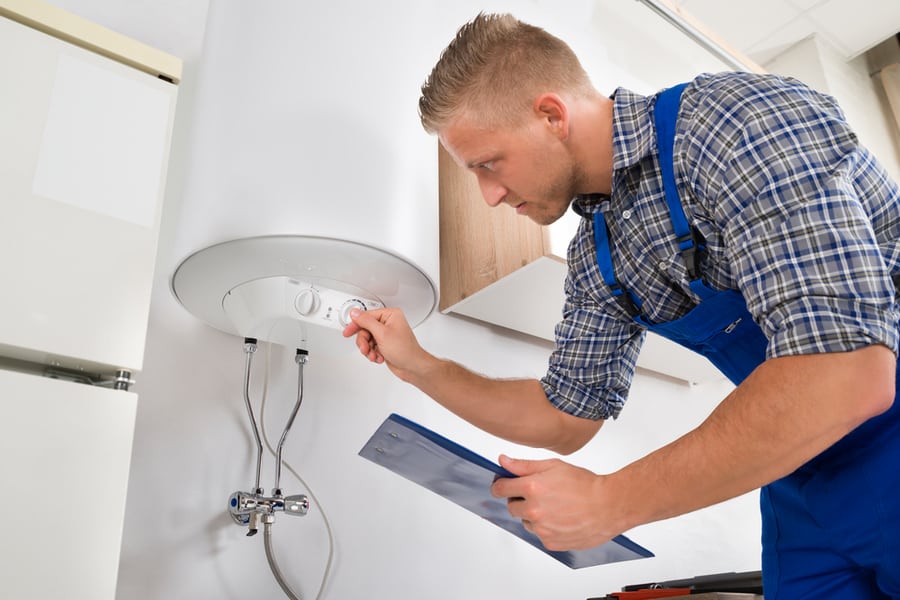
Noises such as whining, clunking, knocking, or popping are common in a busted water heater. In most cases, the noises are due to sediment accumulated at the bottom of the tank.
4. Strange Water Temperatures
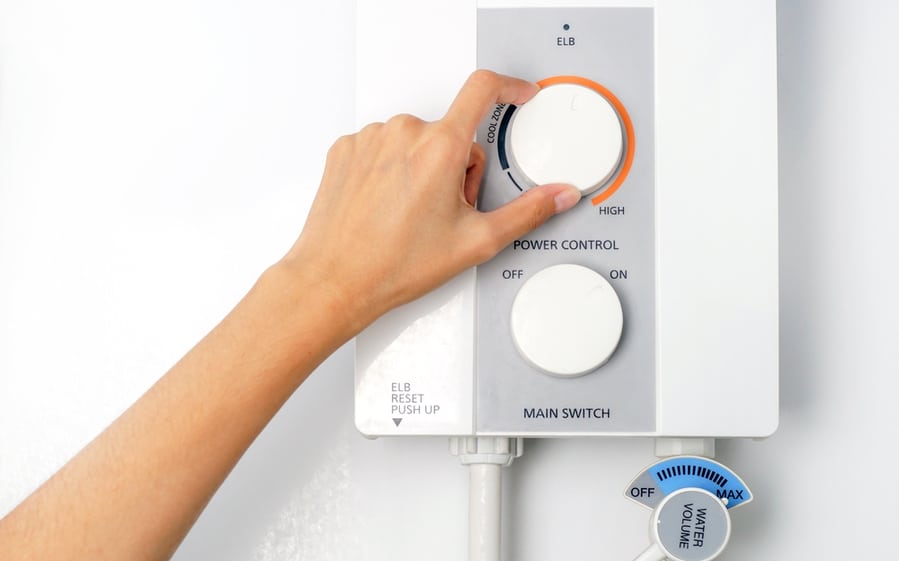
This is a common sign of a broken water heater. The water heater starts producing water that is at the incorrect temperatures. The water can be a bit cold or extremely hot.
The solution can be simple in some cases, and you only have to adjust the thermostat on the heater until the water temperatures are correct.
Sometimes the problem is due to a broken heating element which should be replaced. Some of the causes of this problem can be easily fixed.
Seeking help from a skilled plumber about water temperature issues will help you to know the exact cause instead of assuming the tank is faulty.
5. Failed Parts
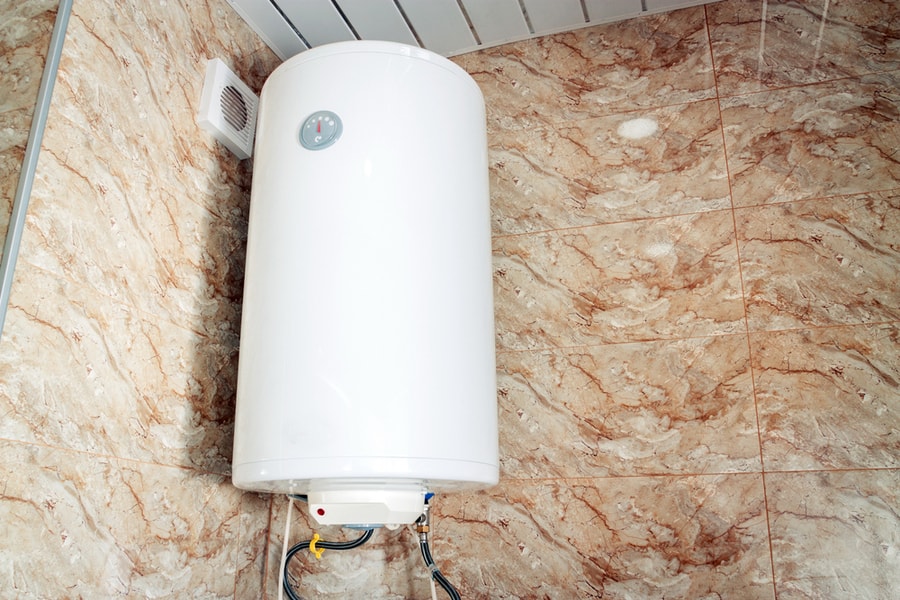
Various water heaters parts, such as safety limit switches and heating elements, can fail. When the tank stops producing hot water, that is an indication that the heating element is faulty.
The safety limit switch ensures the pilot light remains lit. Whenever the pilot light starts to be unreliable, it signals the safety limit switch has a problem.
Conclusion
Suppose you have been using water for a long time and have never experienced unlucky. However, you can encounter this problem someday. Therefore do not take for granted that appliance that supplies you with water whenever you want.
There are several reasons for a burst water heater: corrosion, aging or old heater, sedimental accumulation, a broken storage tank, and excess pressure. There are five steps you should take if the water heater bursts.
Various signs indicate your water heater appliance has failed or burst, such as strange noise, leaking, corrosion, strange water temperatures, and failed parts.
Be keen on your appliance and when you see any change, take action or even call a skilled to come and check if it is fine or needs a repair or replacement.
Never ignore anything strange you see on your water heater, regardless of how small it may be because it can lead to serious issues that will eventually cost you a lot of money.


